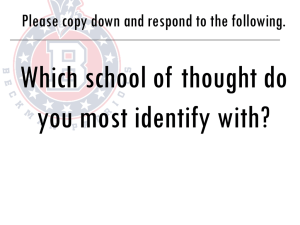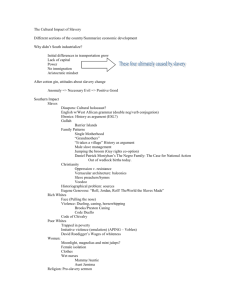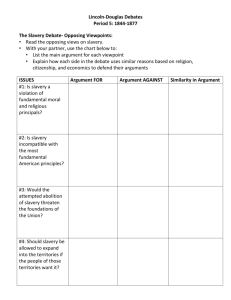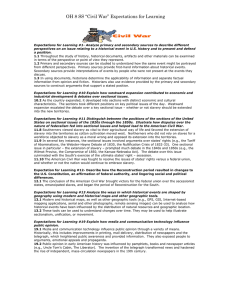Pick Your School of Thought
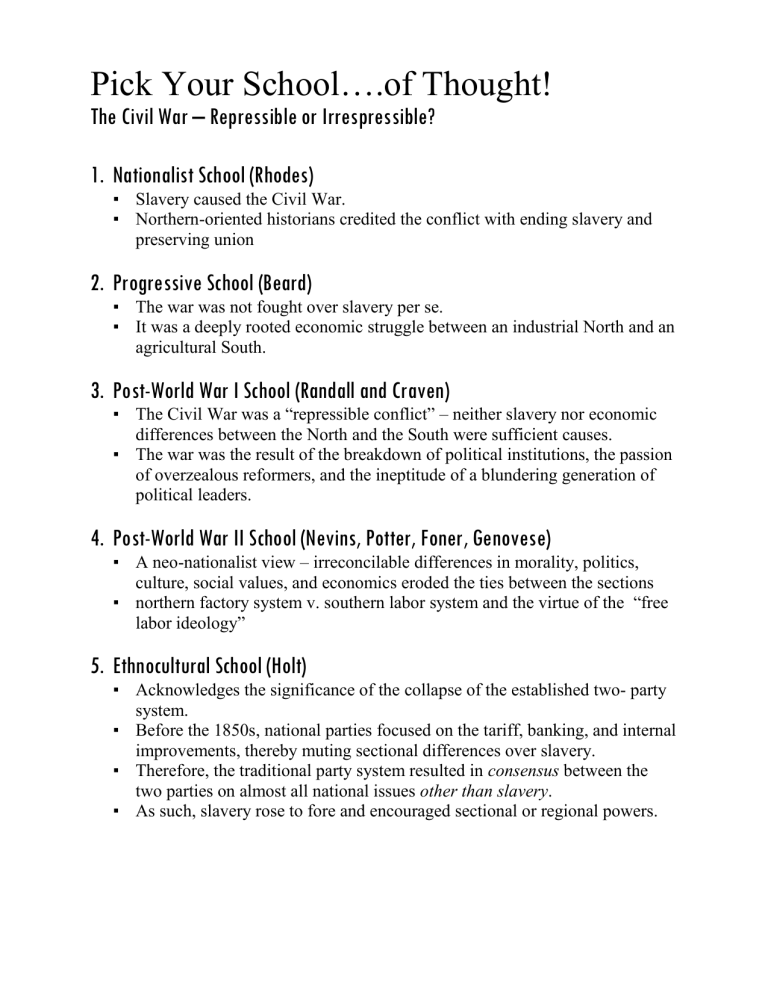
Pick Your School….of Thought!
The Civil War – Repressible or Irrespressible?
1. Nationalist School (Rhodes)
▪ Slavery caused the Civil War.
▪ Northern-oriented historians credited the conflict with ending slavery and preserving union
2. Progressive School (Beard)
▪ The war was not fought over slavery per se.
▪ It was a deeply rooted economic struggle between an industrial North and an agricultural South.
3. Post-World War I School (Randall and Craven)
▪ The Civil War was a “repressible conflict” – neither slavery nor economic differences between the North and the South were sufficient causes.
▪ The war was the result of the breakdown of political institutions, the passion of overzealous reformers, and the ineptitude of a blundering generation of political leaders.
4. Post-World War II School (Nevins, Potter, Foner, Genovese)
▪ A neo-nationalist view – irreconcilable differences in morality, politics, culture, social values, and economics eroded the ties between the sections
▪ northern factory system v. southern labor system and the virtue of the “free labor ideology”
5. Ethnocultural School (Holt)
▪ Acknowledges the significance of the collapse of the established two- party system.
▪ Before the 1850s, national parties focused on the tariff, banking, and internal improvements, thereby muting sectional differences over slavery.
▪ Therefore, the traditional party system resulted in consensus between the two parties on almost all national issues other than slavery .
▪ As such, slavery rose to fore and encouraged sectional or regional powers.
